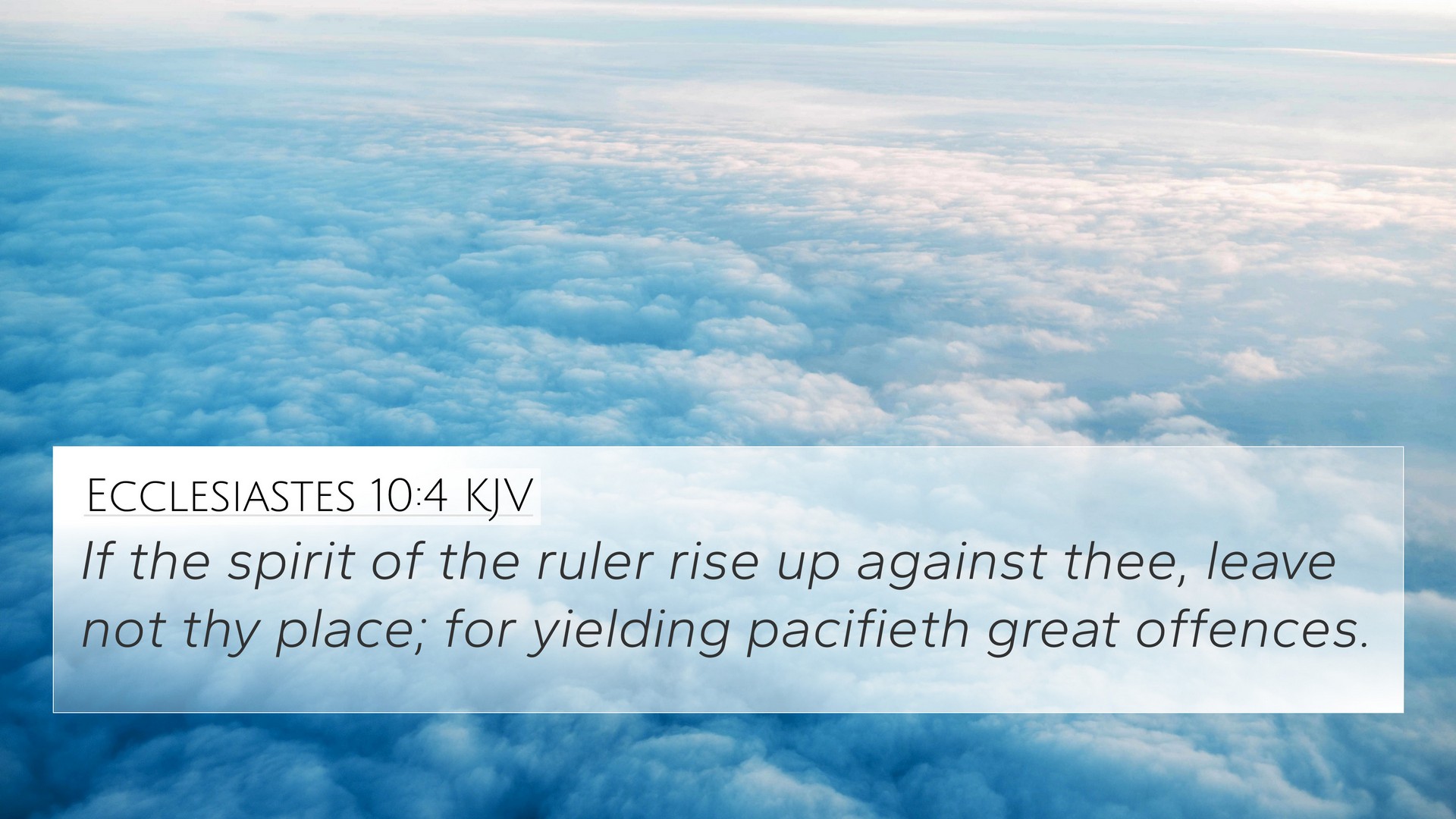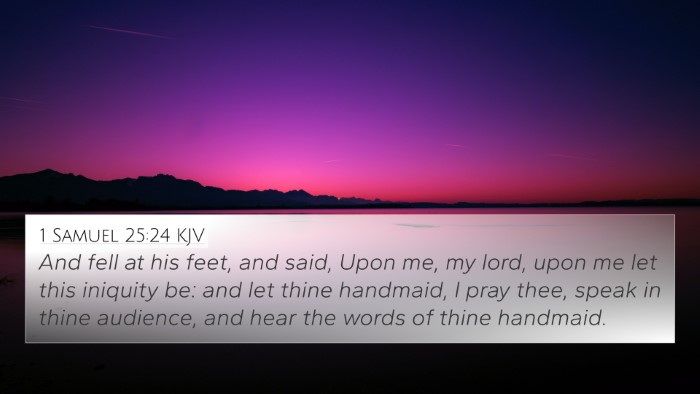Ecclesiastes 10:4 states, "If the spirit of the ruler rises against you, do not leave your post; for calmness will lay great offenses to rest." This verse underscores the importance of maintaining composure and steadfastness in the face of adversity, particularly in the context of authority and governance.
The insights from public domain commentaries shed light on the deeper meanings behind this verse:
-
Matthew Henry's Commentary:
Henry reflects on the perseverance needed when faced with the anger or displeasure of those in power. He emphasizes that losing one's position or duty is not the solution. Instead, calmness and a measured response can alleviate situations that seem otherwise volatile.
-
Albert Barnes' Notes:
Barnes further elaborates that the "spirit of the ruler" often encompasses their mood and temperament. He urges that resilience in our duties is paramount. The call for "calmness" is highlighted as a key virtue, suggesting that a level-headed approach can diffuse not only personal conflicts but larger disputes as well.
-
Adam Clarke's Commentary:
Clarke dives into the social responsibilities of individuals, especially those in leadership roles. He notes that a leader's anger should not dictate the actions of those subordinate. Instead, he advocates for the wisdom in stillness, encouraging individuals to stand firm and act wisely rather than reactively.
This verse is interconnected with various other Scripture passages, thereby enriching its meaning through Biblical cross-references. Here are some related verses:
- Proverbs 14:29: "Whoever is slow to anger has great understanding, but he who has a hasty temper exalts folly." This verse emphasizes the benefit of patience and self-control, mirroring the call for calmness in Ecclesiastes.
- Proverbs 16:32: "Better a patient person than a warrior, one with self-control than one who takes a city." Again, the virtue of restraint is praised.
- James 1:19-20: "Everyone should be quick to listen, slow to speak and slow to become angry, because human anger does not produce the righteousness that God desires." This New Testament parallel reinforces the teachings on temperance and wisdom.
- 1 Peter 2:18: "Servants, be subject to your masters with all respect, not only to the good and gentle but also to the unjust." This verse ties into the theme of responding to authority, even when it is challenging.
- Romans 12:19: "Dear friends, do not take revenge, but leave room for God’s wrath, for it is written: 'It is mine to avenge; I will repay,' says the Lord." This verse promotes a measured response in the face of wrongdoing.
- Proverbs 25:15: "Through patience a ruler can be persuaded, and a gentle tongue can break a bone." This proverb supports the notion that calmness can yield results in uneasy situations.
- Matthew 5:9: "Blessed are the peacemakers, for they will be called children of God." It emphasizes the value of peace and stability, aligning with the message in Ecclesiastes.
The core theme from Ecclesiastes 10:4 suggests maintaining one’s ground amidst turmoil. This principle is echoed across numerous verses, illuminating the intersection of calmness, wisdom, and authority throughout Scripture.
In summary, understanding Ecclesiastes 10:4 enhances one's grasp of the virtues of patience and composure in the face of authority, grounded in a broader context of Biblical literature that emphasizes similar themes. By engaging in Bible verse cross-references, one can uncover connections between Bible verses that provide deeper insights into God's Word. This not only aids in personal study but also serves as a foundation for collective worship and teaching.
For those interested in cross-referencing Biblical texts, it is recommended to utilize tools for Bible cross-referencing such as a Bible concordance or a dedicated Bible cross-reference guide. Knowledge of how to use these resources can facilitate a enriched understanding of Scripture and support the practice of cross-reference Bible study.





